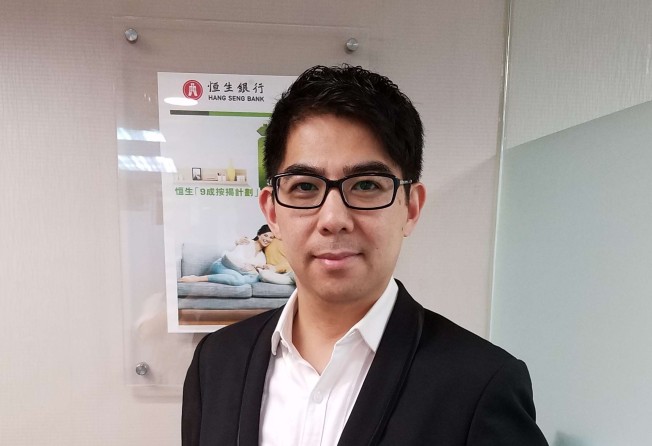Banking on a mortgage? What do lenders require for an application to be successful?
Expert advice on what applicants might need to present to the lender when trying to get a loan to buy a home

Yip King-keung is the founder of Hong Kong Mortgage Consultants. He talks about what banks consider as key requirements in a mortgage loan application.
What do banks look for when considering a mortgage application?
The applicant’s income is the first thing to look at. If you are salaried, the lender will ask for documentary evidence, such as payslips and passbook records for the past three months. If you don’t have a steady income, you might have to supply income proof for the past six months. Apart from that, your debt commitments, such as an outstanding mortgage debt or a personal loan, would also affect the loan amount and interest rate. The second thing banks look at is the value, type and age of the property you wish to purchase. Depending on the value of the property, the lender may offer a loan of up to 60 per cent of its value. For tenement buildings or village houses, the loan-to-value (LTV) ratio is usually lower. And if the building is very old, say over 40 years old, the mortgage term tends to be shorter. Under the existing mortgage rules, applicants with a regular and sufficient source of income – especially employees from large organisations and civil servants – are always preferred by lenders. If you are self-employed or a small-business owner, the lender will likely further ask for copies of your tax returns and audit reports. If you work for a small business, you may have to provide copies of tax returns and MPF contributions records. In addition to income requirements, the existing measures include limiting the maximum LTV ratios for different amounts of mortgage loans. For example, the more expensive the home is, the lower the permitted LTV ratio. The amount one can borrow on riskier cases – such as non-owner-occupied properties, properties under the net-worth-based lending, borrowers whose income is mainly derived from outside Hong Kong, and commercial and industrial properties – is also lower.
Are banks flexible if a mortgage applicant is a regular and long-term customer? Or do the same rules apply?
As required by the Hong Kong Monetary Authority (HKMA), the same mortgage rules apply to all, no matter whether the applicant is the bank’s existing customer or not. At present, the lowest effective mortgage rate allowed by the regulator is 2.15 per cent per annum and it cannot be cut further. Having said that, one advantage of being the bank’s long-term client is that it usually takes a shorter amount of time to process the application because the bank already knows your financial standing.
Can a mortgage applicant know whether his application will be successful or not in advance?
Most mortgage brokers can tell you verbally whether your application will be approved or not based on your income, outstanding loans and the property you intend to buy. Many banks also offer mortgage pre-approval. This is essentially a written confirmation from a lender pre-approving a certain amount of loan based on the income, credit information and property particulars supplied by the applicant and verified by the lender. Most mortgage pre-approvals are valid for up to 90 days.
Does the 60 per cent LTV ratio only apply for properties worth HK$7 million and lower, and is this strictly applied to all applicants?
The LTV ratio for mortgages on self-use residential properties valued at HK$7 million or less is capped at 60 per cent if the applicant’s income is derived in Hong Kong, and 50 per cent if his or her income is derived from outside Hong Kong. The same lending rule applies to homes valued at between HK$7 million and HK$10 million, but they are subject to loan caps of HK$5 million and HK$4 million, respectively. For self-occupied homes valued at
HK$10 million or above, the LTV ratios are capped at 50 per cent and 40 per cent for local and overseas income earners, respectively.